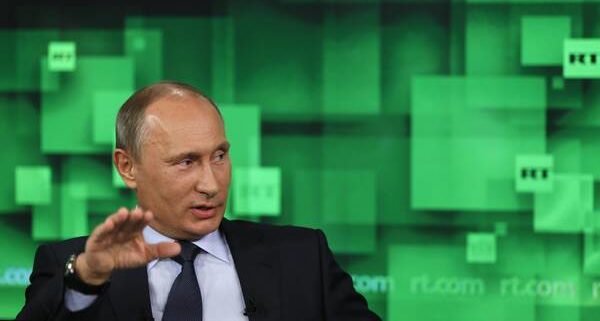Belgrade
Since Russia invaded Ukraine in February 2022, Serbia has had to manage a balancing act. The country negotiated an advantageous gas deal with Russia back in May, but has also had to maintain its accession talks with the European Union, aiding this by voting in favour of most of the UN resolutions adopted since the invasion. This includes one condemning the attack on Ukraine and another that demands Russia to reverse course on ‘attempted illegal annexations’.
However, as Russia intensifies its onslaught, Serbia does not seem to be helping itself. On November 15th, the same day that Ukraine saw some of the worst airstrikes since the start of the invasion, Serbian President Aleksandar Vučić was seen posing in Chechen traditional clothing next to Turko Daudov, advisor to Head of the Chechen Republic Ramzan Kadyrov. During the appearance, Vučić stressed that “Russian-Serbian relations cannot be destroyed under any kind of pressure.”
That same day saw an even bigger blow for the EU’s efforts in Serbia as Russia Today (RT) launched a Serbian language version of its website. The new site, dubbed RT Balkan, is also expected to get a TV broadcasting licence and start its programme in 2024.
RT’s editor-in-chief Margarita Simonyan promoted the initiative with a provocative tweet: “We launched RT in the Balkans. Because Kosovo is Serbia.” In an official press release, she added that “we were probably not expected anywhere in the world as much as [in Serbia].”
The EU responded immediately. Notably, Vladimír Bilčík, MEP and the European Parliament’s Standing Rapporteur for Serbia, tweeted: “Actions speak louder than words. To see Russian propaganda making a grand comeback in Serbia via the launch of Russia Today is contrary to Serbia’s commitment to work on alignment with EU foreign policy.”
In light of high-profile criticism, Serbia has attempted to justify yet another friendly gesture towards Russia. The future lead of RT in Serbia, Jelena Milincic, pointed out: “Now the residents of the region will have access to RT in the Serbian language, which will provide a more complete picture of the modern world.” Alexander Bocan-Kharchenko, the Russian ambassador to Serbia, blamed the EU for hypocrisy, labelling a potential ban as a “cynical forgoing of basic European values.”
RT’s Serbian launch is by no means a surprise. Despite the EU’s advice to the contrary, Serbia kept its doors open to Russian media outlets like Sputnik and, going forward, RT Balkan will seemingly be close to the Moscow-aligned press. Jelena Milincic is the daughter of Ljubinka Milincic, the editor-in-chief of Sputnik’s Serbian edition.
The EU must now think carefully about its approach to Serbia. On the one hand, doing nothing besides the occasional tweet is going to carry costs. Should Serbia get away with its balancing act, we are likely to see more countries attempting to do the same — with Hungary being the likely first contender.
However, forcing Serbia into a corner with restrictions is unlikely to yield productive results, given that 84% of Serbs are against imposing sanctions on Russia. Thus, any such attempt by the EU would be seen as an act of direct interference in another country’s sovereignty.
Indeed, very few countries are known for responding well to threats — as seen in Italy not that long ago. Just before the country’s elections, European Commission President Ursula von der Leyen told Italians that the EU has the “tools” available to respond should the outcome go in a “difficult direction”. Naturally, results did indeed go in this “difficult direction” for the EU.
In future, the EU must be both realistic and creative, otherwise it risks carrying costs it may not be able to pay. In the face of Serbian cosying up to the Kremlin, the bloc needs to find a way beyond empty condemnations and ensure its member state produces a clearer stance.










Join the discussion
Join like minded readers that support our journalism by becoming a paid subscriber
To join the discussion in the comments, become a paid subscriber.
Join like minded readers that support our journalism, read unlimited articles and enjoy other subscriber-only benefits.
Subscribe